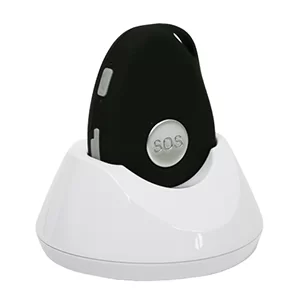As our elderly parents age, certain conditions can cause changes in personality and behaviour. This is often just a natural part of life. However, there may be some occasions where it is necessary to step in and address your parent’s behaviour. These conversations can be uncomfortable for all involved, particularly if your parent is living with a condition like dementia.
Nevertheless, it’s important to try and help your parent to control their difficult behaviour. Today, we’ll discuss a few common examples of behavioural issues in older adults and share our top tips for talking about them.
How to Deal With Your Elderly Parent’s Difficult Behaviour
Changes in your elderly parent’s behaviour could be caused by a wide range of factors. Sometimes, behavioural issues can be a sign of illness or health concerns. If you are concerned for your parent’s wellbeing, you should help them make an appointment with their GP.
In the short term, however, you might be finding it difficult to cope with your elderly parent’s behaviour. Here are some tips for talking to your elderly parent about their difficult behaviour.
Anger
This is one of the more common examples of difficult behaviour in elderly parents. Ageing and illness can exacerbate feelings of anger and stress. Anger issues might make it difficult for your parent to communicate effectively.
Try to identify the cause of their anger. By understanding the core issue, you may be able to relieve some of the problems your elderly parent is reacting so strongly to. Children often bear the brunt of their elderly parent’s outbursts, but it is important not to take it personally.
If the issue is something such as chronic pain, you should get in touch with their GP. A doctor will be able to advise the best action to take.
Ensure that you are looking after yourself, too. You should not have to deal with violence in any capacity. If your parent ever displays violent or abusive behaviour, it’s important to set healthy boundaries. Remove yourself from the situation, explain to your parent that you will not accept that kind of treatment, and make alternative arrangements for their care until you are both ready to talk.
Paranoia and Hallucinations
Paranoia can indicate a deterioration in your parent’s health. However, it’s not always a sign of mental health issues; it can be from something as benign as a UTI.
Paranoia can lead someone to accuse family members of stealing or lying, for example. This can be very hurtful and confusing for the person on the receiving end. It is tempting to insist that what they are saying or feeling is not true, but this is often counterproductive. It is better to acknowledge your parent’s concerns and calmly offer an alternative, rational explanation.
Hallucinations are sometimes associated with dementia. Therefore, if the problem is persistent, you should raise this with their GP. The most crucial thing is to get to the bottom of the reason for the paranoia and hallucinations so you can start working towards a solution.
Hoarding
Hoarding is another example of difficult behaviour. This is when someone acquires and holds onto a large number of items. These might be things with sentimental value, or they could be things that the person thinks will come in handy or increase in value over time. Hoarders often live in messy environments and there may not be any organisation to their collections.
Hoarding is often rooted in the belief that an item will have significant value at some point in the future. Many people don’t seek help for hoarding issues as they may not see this behaviour as a problem, or there may be feelings of shame that stop them from asking for support.
It is natural for you as an outsider to want to clear out the clutter, but this can be extremely distressing for someone who is struggling with hoarding. Instead, approach the conversation with sensitivity. It might be useful to start by creating a ‘memory box’ as a place for keeping special items. This can help the process of organising and will prompt your parent to sort through their items with their value in mind. If your parent is hoarding things, it’s important to let them lead the next steps. Ask them how they would like you to help. Do they want you to take any rubbish to the tip once they’ve sorted through it? Do they want you to help them sort through their collection? Perhaps they just want you to be there with them while they clear out the clutter.
Extreme hoarders sometimes benefit from medication and counselling to help them confront their issues. Sometimes, it may be worth speaking to adult social services for stubborn hoarders, particularly if their living conditions have become unsanitary and dangerous.
Over-Spending or Extreme Frugality
A lot of caregivers can become very stressed trying to deal with loved ones’ spending habits. Unfortunately, elderly people are the most susceptible to scammers.
You might feel like you are intruding when you question your parent’s ability to manage money because it is directly tied to their decision-making skills. There may be occasions where this brings into question whether your parent is still able to live independently. However, as with all the other kinds of difficult behaviour we’ve discussed, it’s important not to bury your head in the sand. It’s always better to deal with the problem sooner rather than later.
Again, the best place to start here is with a conversation. Try and help them to understand that you are speaking from a place of care. It is vital that you attempt to help your parents to come up with their own solutions before you take further steps to intervene.
If you believe that your parent is no longer capable of making financial decisions for themselves, you may want to look into Power of Attorney. This enables you to ensure they are spending their money in their own best interest.
Read More: Finance Tips for You and Your Elderly Loved Ones
Needy Parents
Sometimes, a person who is still capable of doing things for themselves can easily become dependent on their caregivers. These caregivers are commonly adult children or grandchildren. This can cause strain on family relationships, as well as on the caregiver’s personal and professional life.
Often, caregivers feel guilty when they are not able to meet their parent’s expectations but this shouldn’t be the case. These feelings can be exacerbated if the parent is reluctant to use additional outside help.
If you feel trapped caring for an elderly parent or grandparent, ensure that you are still making yourself a priority. Allow yourself to set healthy boundaries; otherwise, you are likely to overexert yourself and reach a state of burnout or exhaustion. Support your parent to maintain their independence where possible. If necessary, talk to them about needing to take time for yourself. Don’t be afraid to ask for additional help when you need it.
How Can Careline Protect My Parents?
A Careline alarm is a great way to protect your parents at home. We can ensure that your parents receive help quickly in an emergency. To find out more read our online guide. For further enquiries, or to order your Careline alarm today, call our team on 0800 030 8777.
Editor’s Note: This article was updated on 24th August 2023 to reflect current information.
Essential Plan
Save £68 if paid annually
Basic pendant
- Not included, Automatic Fall Detection
- Included, 100 Metre Range
- Included, Wearable on Wrist or Neck
- Included, Waterproof
- Included, No Need to Charge
- Included, Easy to Activate
Plug-in Base Unit
- Included, 24/7 Monitoring Service
- Included, Lifetime Warranty
- Included, Plug-In, Easy Set Up
- Not included, No Phone Line Needed
- Not included, Our Fastest Connection Time

Plug-in Base Unit + Basic pendant

Basic pendant
- Not included, Automatic Fall Detection
- Included, 100 Metre Range
- Included, Wearable on Wrist or Neck
- Included, Waterproof
- Included, No Need to Charge
- Included, Easy to Activate
Plug-in Base Unit
- Included, 24/7 Monitoring Service
- Included, Lifetime Warranty
- Included, Plug-In, Easy Set Up
- Not included, No Phone Line Needed
- Not included, Our Fastest Connection Time
Get 3 months free by paying annually
Essential+Plan
Save £80 if paid annually
SmartTrigger Pendant
- Included, Automatic Fall Detection
- Included, 600 metre range
- Included, Wearable on Wrist or Neck
- Included, Waterproof
- Included, No Need to Charge
- Included, Easy to Activate
SmartLife Hub
- Included, 24/7 Monitoring Service
- Included, Lifetime Warranty
- Included, Plug-In, Easy Set Up
- Not included, No Phone Line Needed
- Included, Our Fastest Connection Time

Rapid Connect Hub + SmartTrigger Pendant

SmartTrigger Pendant
- Included, Automatic Fall Detection
- Included, 600 metre range
- Included, Wearable on Wrist or Neck
- Included, Waterproof
- Included, No Need to Charge
- Included, Easy to Activate
SmartLife Hub
- Included, 24/7 Monitoring Service
- Included, Lifetime Warranty
- Included, Plug-In, Easy Set Up
- Not included, No Phone Line Needed
- Included, Our Fastest Connection Time
Get 3 months free by paying annually
Complete Plan
RecommendedOur Safest AlarmSave £100 if paid annually
Fall Detector
- Included, Automatic Fall Detection
- Included, 300 Metre Range
- Included, Wearable on Wrist or Neck
- Included, Waterproof
- Included, No Need to Charge
- Included, Easy to Activate
SmartLife Hub
- Included, 24/7 Monitoring Service
- Included, Lifetime Warranty
- Included, Plug-In Anywhere, Easy Set Up
- Included, No Phone Line Needed
- Included, Our Fastest Connection Time

Rapid Connect Hub + Fall Detector

Fall Detector
- Included, Automatic Fall Detection
- Included, 300 Metre Range
- Included, Wearable on Wrist or Neck
- Included, Waterproof
- Included, No Need to Charge
- Included, Easy to Activate
SmartLife Hub
- Included, 24/7 Monitoring Service
- Included, Lifetime Warranty
- Included, Plug-In Anywhere, Easy Set Up
- Included, No Phone Line Needed
- Included, Our Fastest Connection Time
Get 3 months free by paying annually
GPS Pendant Plan
Save £88 if paid annually
GPS Location Tracking + Inbuilt Speaker

- Included, Go Anywhere Alarm
- Included, GPS Alarm Pendant
- Included, GPS Location Tracking
- Included, Optional Fall Detection
- Included, Inbuilt Speaker
- Included, Charging Base Station
Get 3 months free by paying annually
GPS Pendant Plan
- Go Anywhere alarm
- GPS Alarm Pendant
- GPS Location Tracking
- Optional Fall Detection
- Inbuilt Speaker
- Charging Base Station

Get 3 months free by paying annually




Leave a Reply